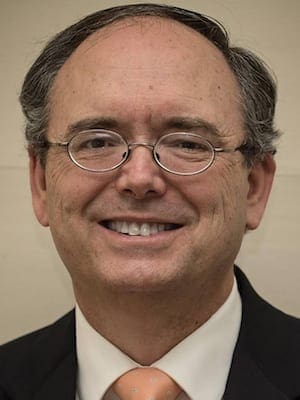Unless you choose to live as a hermit, which is understandable, or choose to pay absolutely no attention to baseball, which is not, then you have heard about the perfect game that wasn’t.
In a game played between the Detroit Tigers and the Cleveland Indians on June 2, pitcher Armando Galarraga had retired 26 consecutive batters, which put him one out away from pitching a perfect game, which in baseball is defined as pitching a game in which no batters reach base in any way.
Cleveland’s Jason Donald came to bat with two outs in the ninth inning and hit a ground ball between first and second base that was fielded by Tigers’ first baseman Miguel Cabrera, who threw the ball to Galarraga, who was covering first base. As the replays showed, Donald was out by half a step, which in baseball space and time is a country mile.
Only he was safe because first-base umpire Jim Joyce said he was and that’s the way it works in baseball.
Galarraga retired the next batter to preserve his one-hit shutout. Joyce got bawled out by Tigers manager Jim Leyland, both after the play and after the game, and booed vociferously by the Detroit crowd.
And so it came to pass that previously obscure Detroit Tigers pitcher Armando Galarraga and veteran umpire Jim Joyce became my two new baseball heroes – not because of their performances on the field but because of the way in which they each responded to what had happened.
When Joyce called the runner safe, a look of disbelief passed across Galarraga’s face but he didn’t say a thing to the umpire. He just smiled, took the ball back to the mound, got back to work and finished his job.
As Joyce would later say about the verbal dressing down he took from Leyland and other Tigers players, “I don’t blame them a bit for anything that was said.”
Joyce said, “I would’ve said it myself if I had been Galarraga. I would’ve been the first person in my face, and he never said a word to me.”
Joyce also said that he didn’t offer an explanation at that point to Leyland because he believed that he had made the right call.
It was only after going into the clubhouse and watching the replay that the umpire realized that he had blown the most important call in a most important game. The realization mortified him.
“It was the biggest call of my career, and I kicked the (stuff) out of it,” Joyce said after viewing the replay. “I just cost that kid a perfect game.”
And with that Joyce left the umpires’ locker room, went to the Tigers’ dressing room and apologized to Galarraga for the mistake.
In a statement that an ESPN commentator appropriately labeled “ironic,” Galarraga, when asked for his reaction to Joyce’s error, said, “Nobody’s perfect,” and then went on to say that he was sure that no one felt worse about what had happened than Joyce did.
Armando Galarraga is one of my baseball heroes – not because of the perfect game that he pitched but did not get credit for – but because of the perspective he displayed and the grace he showed in the face of unfairness and its accompanying disappointment.
When the blown call occurred, Galarraga did not pitch a fit over someone else’s mistake; he instead walked back to the mound and finished the job. And after the game he did not bemoan the mistake that had cost him his place in baseball history but rather accepted the human element in the game and refused to throw stones at the umpire.
Jim Joyce is one of my baseball heroes because he immediately faced up to the mistake he had made, acknowledged it, apologized for it, did not try to hide how upset he was by it – and did not try to run from it, given that the next night he walked back out on the field in Detroit and got behind the plate to call balls and strikes.
We live in a time when it can be difficult to find appropriate role models among professional athletes for our children. It is easy to become jaded in this era of players-for-hire and steroid abuse and other facts of recent baseball history.
We also live in a time when many people seem to be all too ready to claim victim status in circumstances whose insignificance in the great scheme of things makes their claims an insult to those who are truly victims.
We furthermore live in a time when we are far too accustomed to hearing public figures, when they are caught in wrongdoing, say things like “I am not a crook” or “It depends on what the meaning of the word ‘is’ is” or “I misspoke” or “It is somebody else’s fault.”
So fathers and mothers, if you are looking for baseball professionals to whom your children can look up and whose character they can emulate, you could do far worse than my two new baseball heroes.
Taking responsibility, refusing to whine, apologizing face to face, and accepting a face-to-face apology – now those are traits to be admired.
Wednesday, June 2, 2010, will not go in the record books as the night that Armando Galarraga pitched a perfect game, but it should be recorded in our minds as the night that Galarraga and Joyce showed us how to be responsible adult human beings.
It would be a far better world if more of us would follow their example.
Michael Ruffin is pastor of First Baptist Church in Fitzgerald, Ga. He blogs at On the Jericho Road, where this column first appeared.

